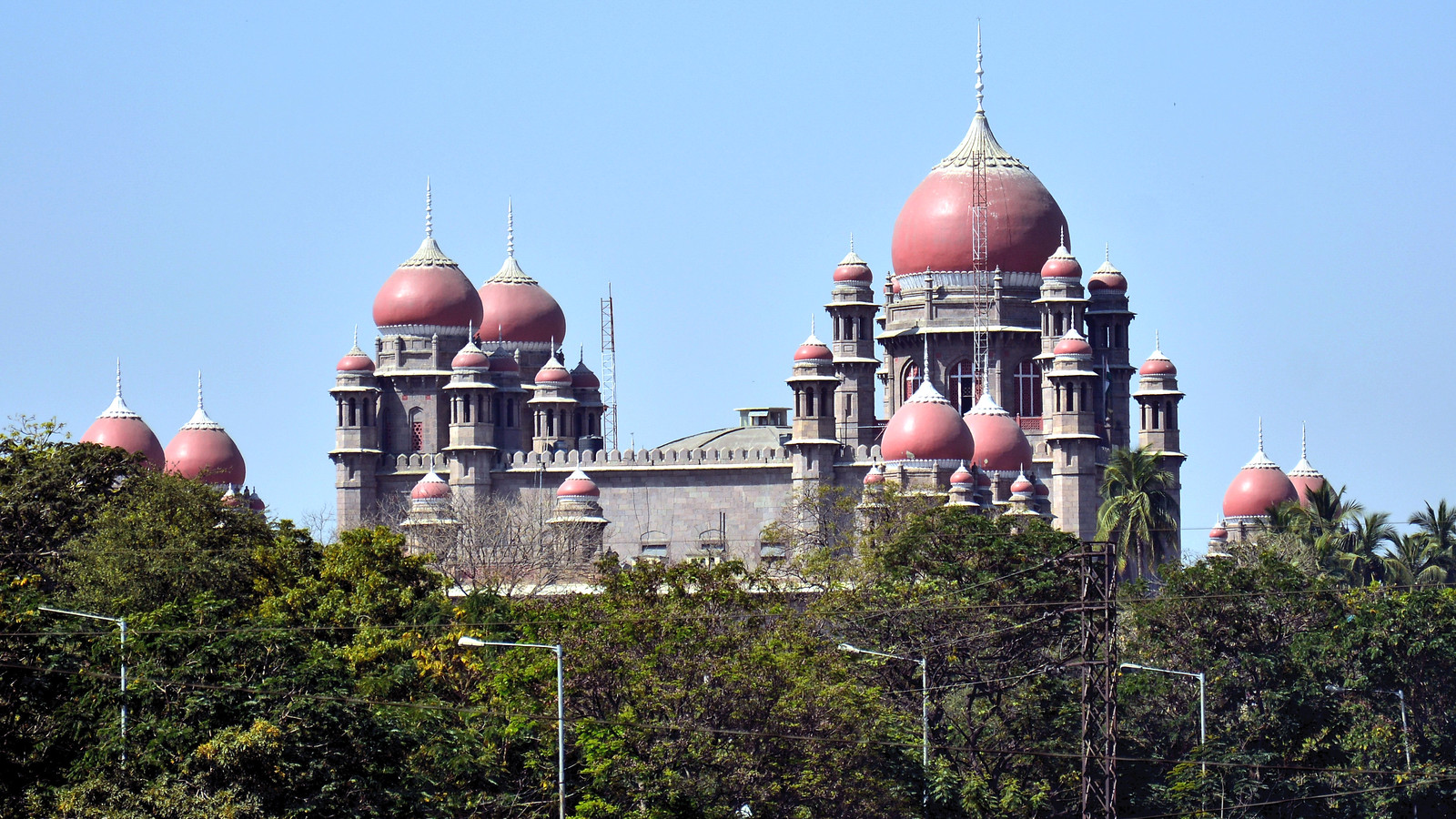


In a recent development, the Telangana High Court has dismissed a batch of six writ petitions challenging the legality of specific clauses within the Telangana State Judicial Service Rules, 2023.The court, presided over by Justice Sujoy Paul and Justice N Tukaramji, rejected the contention that since a law graduate can enroll as an Advocate under the Advocates Act at the age of 21, it is unreasonable to prohibit them from submitting their candidacy under the challenged rules until they reach the age of 23.The court stated that “It is the prerogative of the employer. The employer is best suited to decide when a category of candidate can be treated to be matured enough to enter Judicial Service. If such a decision is taken by employer by prescribing an age, it cannot be interfered with unless proved to be palpably arbitrary and irrational. Merely because a law graduate can become an Advocate at the age of 21 years, it does not give him any enforceable right to participate at the same age for Judicial Service.”The court made the observation while hearing petitions, brought forth by Thedlapu Dipsikha and five others, contested the validity of Rule 2(k) and Rule 5.2(A). These rules set forth regulations concerning the age limit for candidates applying for the position of civil judge (junior division), as well as provisions restricting participation solely to advocates practicing in Telangana and requiring a certificate of practice from the relevant bar association.The petitioners contended that the requirement of three years' advocacy experience violated the directives issued by the Supreme Court in the All India Judges’ Association case. However, the court referenced a similar case before the Madhya Pradesh High Court, where the requirement was upheld. The Supreme Court's dismissal of the subsequent Special Leave Petition further reinforced the validity of such requirements. Therefore, the court rejected the argument that the Rules of 2023 contravened the All India Judges’ Association judgment.The court while addressing challenges to the requirement of obtaining a certificate of practice from the Bar Association and the prescription of minimum and maximum age limits for different categories of candidates, ruled that “the requirement to furnish such certificate is not without any basis. The purpose to obtain that certificate is to ensure that the Advocate is actually practising in the concerned Court. Since there is an object sought to be achieved, the same cannot be called as unconstitutional.”The court reiterated that it is within the employer's prerogative to determine the eligibility criteria, including educational qualifications and age, for candidates. This decision-making process is primarily administrative and falls under the authority of the employer and referred to as a 'policy decision’ by the Apex Court.In the case of ‘Hirandra Kumar vs. High Court of Allahabad’, the affirmed the authority's power to set cutoff dates and age limits as part of the selection process. While acknowledging that such limits may seem arbitrary to some candidates, the court emphasised that they must have a rational basis and not violate constitutional principles. The court also highlighted that the determination of cutoff dates is a matter of policy, and the judiciary does not intervene in the rule-making authority's discretion in framing rules.This principle, as laid down in the case of Hirandra Kumar, was subsequently upheld in Devina Sharma and other cases. The courts reiterated that the establishment of minimum and maximum age requirements for entry into service is fundamentally a matter of policy. The judgments of the Orissa High Court in Jnyananda Panda and the Himachal Pradesh High Court in Satish Kumar and others further supported this view.In light of the consistent legal precedent set by these judgments, the court ruled that it found “no fault can be found in the impugned Rules in prescribing different age limits for different category of candidates.”The court held “Resultantly, we are unable to hold that there was no intelligible differentia and objects sought to be achieved while prescribing the different age for different set of candidates. In other words, it cannot be held that the said classification in respect of age is an unreasonable classification.”In conclusion, the court dismissed the writ petitions, finding no grounds for declaring the Telangana State Judicial Service Rules, 2023 unconstitutional. It upheld the validity of the rules and the notification issued in accordance with them.
TAGS: Telangana High Court Judicial Service Rules 2023 legality writ petitions age limit eligibility criteria advocate Supreme Court precedent